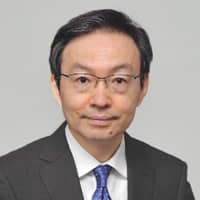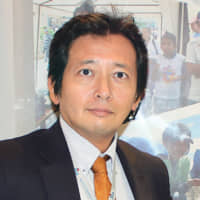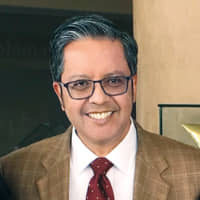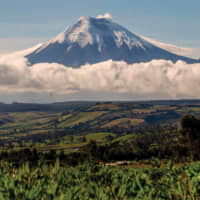To mark the centennial of the establishment of diplomatic ties with Japan, Ecuador’s President Lenin Moreno flew to Tokyo last year accompanied by government officials, business leaders and entrepreneurs, all of them eager to build a stronger partnership with the world’s third-largest economy.
Over the last several years, trade between Japan and Ecuador has grown consistently, dominated by high-quality produce and agricultural products such as bananas, plantains, cocoa, broccoli and coffee, which have satisfied the exacting standards and palates of Japanese consumers.

Meanwhile, Japanese companies have grown optimistic over prospects in Ecuador, which has seen a growing middle class whose aspirations include owning Japanese-made cars and other consumer products.
“We look forward to deepening ties with the government of Japan as we work toward an eventual bilateral free-trade agreement. Ecuador is a relatively small market but our country has a lot to offer Japan and the world in terms of the wealth of its land and seas. And our institutions are keen to receive the best of Japanese technology to improve Ecuador’s productive capacities and enhance its people’s quality of life,” said Toyota del Ecuador Commercial Director Luis Baca, who is also president of the Ecuadorian Japanese Chamber of Commerce and Industry.

Then earlier this year, as part of efforts to become more economically engaged with its neighbors, Ecuador applied to join the Pacific Alliance, a Latin American economic bloc composed of Chile, Colombia, Mexico and Peru. Its full membership is expected to receive approval next year.
“Our labor law is changing to promote new jobs. Our long experience with multinationals, including companies like Mitsubishi, has prepared us to become the best partner for any Japanese corporation interested in investing in the country” Macias added.“This is a new era for Ecuador as far as opening up to the international community. Ecuador is a beautiful country with open doors for foreign investments. Our new investment promotion law grants significant tax holidays for several years on new investments. The stability of the U.S. dollar also makes us an interesting alternative,” said founding partner Miguel Macias of Estudio Juridico Macias, a law firm based in Guayaquil.

Toyota and its truck division, Hino Motors, was among those that stuck it out. In fact, the two companies are marking their 60th anniversary in Ecuador.Investors from Japan can expect a warm reception among Ecuadorians, who have displayed a deep loyalty to Japanese brands. Amid an exodus of foreign companies during the hyper-inflation crisis from the 1980s until the 1990s, some Japanese companies chose to remain in the country, endearing themselves to generations of local consumers.
Because of its location and topography, Ecuador possesses the perfect climate to grow a diverse range of quality produce and agricultural goods. As of this year, Ecuador surpassed China as the largest supplier of frozen broccoli to Japan.“Hino trucks have proven themselves to be extremely reliable in traversing Ecuador’s diverse topographies. Our market share is second to none and Hino’s success in Ecuador became a case study in how Hino distributors can win in other South American markets,” said Manuel Malo, president of Teojama, Hino’s main distributor of Hino trucks in the country.

The tropical climate of Ecuador also provides Ecuador’s farmers with the ideal conditions to grow bananas and cacao. While bananas grown in Asia unsurprisingly dominate market share in Japan, some Japanese have developed a keen preference for Ecuadorian bananas.
Based in Duran, Tropical Fruit Export S.A. has exported plantains to Japan since 2014 and found success in the country because of its readiness to go the extra mile for its customers.
“Our point of pride is that our products have made it to Japan, which everyone knows is a gold standard for other importers. We fly out our account manager to our warehouse, 45 minutes away from Guayaquil, to personally inspect each and every batch of produce that is bound for Japan,” Tropical Fruit Export President Edmundo Uribe said.
Another reason Ecuadorians hold Japan in high regard is the country’s contribution to improve its government and educational institutions through programs overseen by the Japan International Cooperation Agency (JICA), which has been active in Ecuador since the 1960s.
“Our initial work in Ecuador was related to talent and student exchange programs. But at present, JICA is involved in various energy projects and provides the country with Japanese technology for tsunami detection and early warning,” JICA’s Country Representative Takeo Ishikawa said.
In another instance of valuable exchanges, the Universidad Central del Ecuador, the country’s oldest and largest institution of higher learning, forged a partnership with a Kyoto-based robotics company to share its technical knowledge and practical application of robotics.



